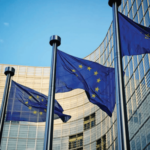Key Solutions for African SMEs Facing Cyber Threats
African SMEs are increasingly facing cyber threats such as phishing, ransomware, and business email compromise. These attacks not only pose a significant risk to businesses but also result in substantial financial losses. In order to combat these threats effectively, SMEs need to implement key solutions tailored to their specific needs and challenges.
Basic Security Measures
Implementing basic security measures is essential for protecting business operations and data. This includes role-based access control, multi-factor authentication, and regular access reviews to ensure that only authorized individuals have access to sensitive information.
Staff Training
Training employees to recognize and respond to cyber threats is crucial in preventing security breaches. This can involve phishing simulations, password management training, and clear incident reporting protocols to ensure that employees are equipped to handle potential threats.
Affordable Tools
Utilizing affordable cybersecurity tools can provide SMEs with the necessary protection without breaking the bank. Solutions such as Bitdefender for antivirus, Bitwarden for password management, and VeraCrypt for encryption offer cost-effective ways to enhance security measures.
Crisis Management
Developing a comprehensive crisis management plan is essential for responding to security incidents effectively. This includes practicing simulations, partnering with cybersecurity experts, and establishing clear procedures for managing and mitigating breaches.
By implementing these key solutions, African SMEs can significantly reduce their vulnerability to cyber threats, protect their data, and ensure business continuity in the face of growing security challenges.
Complete Cybersecurity Guide for South African SMEs (2024)
Core Security Basics
Establishing core security measures is essential for African SMEs to effectively protect their operations from cyber threats. This includes:
Management’s Role in Security
Leadership plays a crucial role in driving cybersecurity efforts within SMEs. By creating clear security policies, allocating resources, building a security-focused culture, and conducting regular reviews, management can strengthen the organization’s ability to prevent and mitigate security risks.
Risk Assessment Steps
Conducting a thorough risk assessment is key to identifying vulnerabilities and potential threats. Steps in the risk assessment process include asset inventory, threat and impact analysis, and understanding the specific risks facing SMEs in the African context.
Access Control Systems
Implementing role-based access control, multi-factor authentication, and regular access reviews are essential security measures for protecting sensitive information and preventing unauthorized access.
Staff Security Training
Training employees to recognize and respond to cyber threats is critical in strengthening the organization’s security posture. This includes teaching threat recognition skills, password and login security best practices, and establishing clear incident reporting protocols.
Basic Security Software
Utilizing reliable security software is crucial for protecting SMEs from cyber threats. Affordable tools such as Bitdefender GravityZone for antivirus, ZoneAlarm Free for firewall protection, and Bitwarden Business for password management offer cost-effective ways to enhance security measures.
Cloud Security Options
For SMEs relying on cloud services, affordable options such as Microsoft 365 Business Premium, PostgreSQL encryption tools, and AWS CloudWatch and Azure Monitor for monitoring security threats can provide robust protection without breaking the bank.
Data Protection Methods
Implementing file encryption tools like VeraCrypt or BitLocker, utilizing cloud backups for data protection, and deploying phishing defense solutions such as Proofpoint Essentials are cost-effective ways to safeguard data and prevent security breaches.
Security Crisis Management
In addition to implementing budget-friendly security tools, African SMEs need to be prepared for security incidents with a solid crisis management plan. Quick action during a security incident can make a significant difference in mitigating risks and minimizing financial losses.
Emergency Response Steps
Having clear procedures for responding to security incidents, containing breaches within 24 hours, and updating security protocols based on incident reviews can help SMEs effectively manage security crises and ensure business continuity.
By following these comprehensive cybersecurity strategies and utilizing affordable tools, African SMEs can strengthen their security defenses, protect their data, and mitigate the growing cyber threats they face.
When it comes to responding to crises, having a structured framework in place can make all the difference. The timeline provided above offers a clear outline of critical actions and key personnel responsibilities at different stages of a crisis. From isolating systems in the first hour to providing updates and ensuring continuity in the following 24 hours, having a well-defined plan can help organizations navigate through challenging times.
Security Expert Partnerships
Establishing relationships with security experts before a crisis occurs is a proactive approach that can pay off in the long run. Organizations like the Africa Cybersecurity Resource Centre (ACRC) and the CyberSafe Foundation offer valuable support for incident response, breach investigations, and recovery planning tailored to African SMEs. By leveraging these resources, businesses can enhance their cybersecurity readiness and resilience.
Crisis Response Practice
Regular practice is essential for improving crisis response capabilities. Conducting tabletop exercises, technical drills, and communication testing can help teams prepare for various scenarios and ensure a coordinated response during a crisis. By simulating real-world situations and refining response procedures, organizations can enhance their readiness to handle cybersecurity incidents effectively.
African Security Laws
Compliance with cybersecurity regulations is a crucial aspect of protecting business operations and maintaining trust with stakeholders. Understanding local security laws, such as South Africa’s Protection of Personal Information Act (POPIA) and the ECOWAS Supplementary Act on Personal Data Protection, is essential for ensuring compliance and minimizing legal risks. By adhering to these regulations and implementing technical safeguards, African SMEs can establish a robust security and compliance framework.
Local Security Rules
Each African country has its own set of security regulations that businesses must adhere to. From appointing Information Officers to implementing security safeguards, SMEs need to navigate the legal requirements specific to their region. By following principles such as accountability, processing limitation, and security safeguards, organizations can strengthen their data protection practices and mitigate cybersecurity risks.
Compliance Methods
Achieving compliance doesn’t have to be costly for SMEs. By documenting data flows, implementing technical security measures, and staying informed about regulatory updates, businesses can ensure compliance with local security laws. Tools like ComplianceForge and OneTrust offer accessible solutions for mapping out compliance requirements and maintaining regulatory alignment.
Security Support Networks
Collaborating with industry partnerships and leveraging free security resources can further enhance cybersecurity practices for African SMEs. Organizations like Liquid Intelligent Technologies and the Cybersafe Foundation offer cloud security services, threat monitoring, and awareness training tailored to SMEs. By tapping into these networks and resources, businesses can strengthen their security defenses and stay informed about emerging threats.
Industry Partnerships
Partnering with organizations like Liquid Intelligent Technologies and the Cybersafe Foundation can provide SMEs with valuable support and resources for improving cybersecurity practices. These partnerships offer access to cloud security services, threat monitoring, and educational tools that can help businesses enhance their security posture and resilience.
Free Security Resources
For SMEs with limited budgets, free tools and resources from organizations like the African Cybersecurity Resource Centre for Financial Inclusion (ACRC) and the Internet Society (ISOC) can be invaluable. These resources offer training materials, security guidelines, and community support to help SMEs address cybersecurity challenges and stay compliant with industry standards.
Final Thoughts on Implementation
By focusing on key steps such as establishing security partnerships, practicing crisis response procedures, and complying with local security laws, African SMEs can strengthen their cybersecurity efforts and build trust with stakeholders. Protecting digital operations isn’t just a matter of security – it’s also about demonstrating reliability and professionalism in a competitive market. By following best practices and leveraging available resources, SMEs can enhance their security posture and safeguard their business against cyber threats.
In today’s digital age, strong cybersecurity measures are essential for businesses to ensure smooth operations. With the increasing number of cyber threats targeting organizations, it is crucial for African SMEs to prioritize cybersecurity to protect their sensitive data and maintain business continuity.
To help African SMEs enhance their cybersecurity posture, here are some key steps to take:
1. Set up data backups: Data backups are critical in case of a cyberattack or data breach. By regularly backing up important information, businesses can recover quickly and minimize potential losses. It is recommended to set up data backups within 120 days to ensure that all essential data is securely stored.
2. Develop response plans: Having response plans in place can help businesses effectively manage and mitigate cyber incidents. These plans should outline the steps to take in the event of a security breach, including communication protocols, containment strategies, and recovery processes. Developing response plans within 180 days is crucial for proactive cybersecurity management.
By prioritizing these actions, African SMEs can strengthen their cybersecurity defenses and protect their business operations from common cyber threats.
In addition to implementing security measures, staying updated on cybersecurity trends and developments is equally important. To stay ahead of potential risks, businesses should regularly check updates from reputable sources such as:
– Tech In Africa: for regional tech news and insights on cybersecurity trends in Africa
– The African Union’s Cybersecurity Expert Group: for expert insights and recommendations on cybersecurity best practices
– National CERT (Computer Emergency Response Team): for local security alerts and advisories on potential threats
– The Africa Cyber Defense Forum: for detailed threat reports and analysis of cybersecurity incidents in the region
By staying informed and proactive in monitoring cybersecurity updates, African SMEs can better protect their business assets and operations from evolving cyber threats.
In conclusion, strong cybersecurity measures are no longer optional but a necessity for businesses to thrive in today’s digital landscape. By following the recommended steps and staying updated on cybersecurity trends, African SMEs can safeguard their data, infrastructure, and reputation from potential cyber risks. Prioritizing cybersecurity is essential for ensuring business continuity and maintaining trust with customers and partners in an increasingly connected world. The world of technology is constantly evolving, with new innovations and advancements being made every day. One of the most exciting developments in recent years is the rise of artificial intelligence (AI). AI is a branch of computer science that aims to create machines that can think, learn, and adapt like humans. This technology has the potential to revolutionize many industries, from healthcare to finance to transportation.
One area where AI is making a big impact is in the field of robotics. Robots powered by AI are becoming increasingly common in factories, warehouses, and even in our homes. These robots are able to perform a wide range of tasks, from assembling products to delivering packages to cleaning floors. They are also able to learn from their experiences and improve their performance over time.
In the healthcare industry, AI-powered robots are being used to assist doctors and nurses in a variety of ways. For example, robots can help with tasks like taking patient vitals, administering medication, and even performing surgeries. These robots are able to work quickly and accurately, helping to improve patient outcomes and reduce healthcare costs.
In the field of finance, AI is being used to analyze vast amounts of data to identify trends and make predictions. This technology is being used by banks and investment firms to make better decisions about where to invest money and how to manage risk. AI is also being used to detect fraud and prevent cyber attacks, helping to protect consumers and businesses alike.
In the transportation industry, AI-powered robots are being used to automate tasks like driving and logistics. Self-driving cars are already on the roads in some cities, and companies like Amazon are using drones to deliver packages to customers. These technologies have the potential to revolutionize the way we travel and do business, making transportation faster, safer, and more efficient.
Overall, AI is poised to have a major impact on society in the coming years. From healthcare to finance to transportation, AI-powered robots are changing the way we live and work. As this technology continues to evolve, it will be important for policymakers, businesses, and individuals to consider the ethical implications and ensure that AI is used responsibly and ethically. Only time will tell what the future holds for AI, but one thing is certain: the age of artificial intelligence is here to stay.








